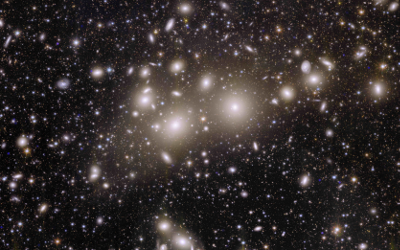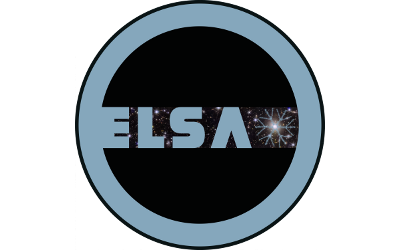Dark matter space telescope project kicks off with powerful new computing

Open University (OU) researchers will bring expertise in machine learning and citizen science to the European Space Agency Euclid space telescope designed to help us to better understand dark matter.
According to Professor Stephen Serjeant, Professor of Astronomy at the OU and part of the space telescope project which launched in February 2024, the team can now strengthen its supercomputer capabilities.
He said:
"Our new Horizon-funded project Euclid Legacy Science Advanced analysis tools (ELSA) has taken its first steps towards transforming the work of the European Space Agency Euclid space telescope, with powerful new computing hardware for training artificial intelligence."
Euclid was launched in July 2023 and was designed to help us understand the nature of dark energy and dark matter. Its giant archive of images and spectra will be a goldmine for studying the formation and growth of galaxies throughout the history of the Universe. But the richest gold veins are also the most difficult to exploit: the tools developed for Euclid’s primary science are not enough to unlock the rich legacy that the Euclid data offer the astronomical community.

ELSA was therefore conceived by a team of astronomers from four European countries to push the boundaries of what can be learned from Euclid's spectra to the limits, uncovering hidden details of even the faintest and rarest galaxies measured by Euclid. ELSA will use artificial intelligence to unpick this data, running on the high performance computing cluster at the University of Bologna's Open Physics Hub, thanks to ELSA's new computing hardware.
Dr Margherita Talia, the ELSA Principal Investigator, said:
"We are very much in the era of big, complex data in astronomy. Euclid's petabyte-scale data avalanche has already started, and ELSA will be transformative for finding the gems hidden inside it."
Professor Serjeant, who is also co-leading the crowdsourced data mining in ELSA, added:
"We're delighted to be part of this project. All of Euclid's data will be open and available in the European Open Science Cloud through virtual observatory tools such as ESA Sky, and Euclid's Early Release Observations are already there. Our plan is to be inclusive and invite citizen science volunteers to help us sift through Euclid's open data, which will help train machine learning and spot rare treasures."
You may also be interested in:
Image credit: ESA/Euclid/Euclid Consortium/NASA, image processing by J.-C. Cuillandre (CEA Paris-Saclay), G. Anselmi
Contact our news team
For all out of hours enquiries, please telephone +44 (0)7901 515891
Contact detailsNews & articles

The FUNdamentals: Why fun matters more than we think
In a world that feels increasingly serious and pressured, fun can seem like a guilty pleasure — something optional, even frivolous. But what if fun isn’t an add on at all? What if it’s essential?